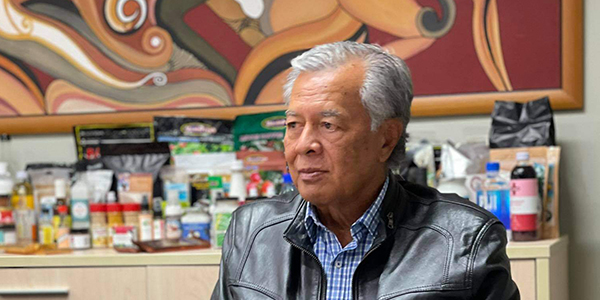Now it’s time for U.S. talks
The Pacific Islands Forum (PIF) Secretary General, Henry Puna, says Pacific leaders stood strong at the 77th session of the UN General Assembly (UNGA77) in New York, raising issues that were critical to their peoples.
“I’m very impressed and pleased with the strong political advocacy and teamwork that our leaders have shown over the past two weeks. It started off with the Pacific Islands Conference of Leaders in Honolulu between the 12th and 14th of September, and it carried on to the United Nations General Assembly here in New York,” said Puna this week.
“The leaders have recognised that there is very strong strategic interest in our region, and that continues to intensify,” Puna said, continuing, “and the only way to leverage this is to protect our solidarity in all facets: how we engage, how we advocate, and how we sit in progress on national priorities.”
The UNGA provided a platform for regional leaders to reiterate concerns over climate action.
Fiji’s Prime Minister, Voreqe Bainimarama, put pressure on world leaders to deliver on the US$100 billion climate finance: “Ahead of COP26 in Glasgow, I told leaders not to bother packing their bags if they did not come with serious carbon-slashing commitments. I have a new question before they arrive in Sharm El-Sheikh. Only come if you plan to arrive true to your climate finance commitments.”
The Pacific region’s struggle to access the climate finance funds has been a long-standing issue. Secretary General Puna said, “One of the important side events was the Global Climate Fund (GCF). It’s good to hear that the problems that we’ve all experienced with this fund and accessing the available millions have finally been taken on board by the board of GCF.
“They are now in the process of introducing systems and processes to free up access by much needed countries to those available funds,” he said.
Puna also said that,the UN has listened to Pacific concerns regarding the imminent release by the Government of Japan of over a million tonnes of radioactively contaminated cooling water from its Fukushima Daiichi Nuclear Power Plant into the Pacific Ocean, commencing next year.
In a separate statement, the PIFs reiterated that “[u]unfortunately, we have yet to receive the sound scientific proof needed, and we are advised that plans for discharge is premature. Based on the independent advice we have received, there are major data gaps and flaws, and more time is simply needed to further consider the plans.”
“The leaders have agreed to step up the political engagement on this very important and urgent issue in the Pacific,” he said..
In his speech in New York, the President of the Federated State of Micronesia, David Panuelo, expresses FSM’s concern over Japan’s plan, saying: “We cannot close our eyes to the unimaginable threats of nuclear contamination, marine pollution, and eventual destruction of the Blue Pacific Continent.
“The impacts of this decision are both transboundary and intergenerational in nature. As Micronesia’s head of state, I cannot allow for the destruction of our ocean resources that support the livelihood of our people,” he said.
Pacific leaders will meet with U.S. President Joe Biden this week at the Pacific Islands Summit. The US has now extended the invitation to all Pacific Island leaders, with Puna saying that when partners “engage with us, they should engage with all of us,” a reference to the earlier plan to only invite leaders of independent nations to the meeting.
“I’m pleased to say that as a result of our various advocacies, our American friends have heard our voices and have now extended an open invitation to all forum members,” said Puna. “Since the summit is being hosted by America, the agenda is still yet to be shared with the members, but we are hopeful that it will be in alignment with the various priorities that are set out in our seven thematic areas in our 2050 strategy,” he said.
However, there seems to be some concern over the agenda of today’s meeting already, with the Solomon Islands saying it won’t sign a regional agreement being proposed by the U.S., saying more time for discussion and reflection on its clauses is needed.
And Compact of Free Association countries, Marshall Islands, Palau and FSM, have also raised concerns over the quantity of funds being offered by the U.S. through the Compact renegotiations.
